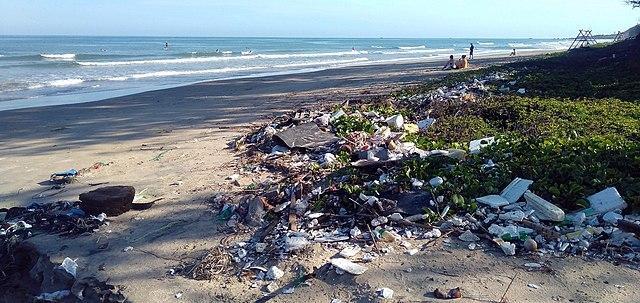Plastic straws and plastic bags are things of the past, now replaced by paper. To reduce pollution in our water sources, biodegradable items have become commonplace in our society. But what we fail to realize is that we, on a consumer basis, are not the issue when it comes to environmental conservation. Rather, the corporations dumping literal tons of plastic into the ocean and polluting our air are the true issue we fail to account for. Although it is impossible to expect these corporations to become zero-emission, it is not impossible to expect them to respect the environment. Due to the fact that they have failed to do so, it’s time for the government to step in and pass an updated piece of legislation regulating water and air pollution by corporations.
The Carbon Disclosure Project (CDP) concluded in 2017 that a mere 100 companies accounted for 71% of the total greenhouse emissions in the world. To put this into perspective, in 2018 there were 36.7 billion metric tons of carbon dioxide (CO2) emitted into the atmosphere, making these 100 companies responsible for about 26 billion out of the 36.7 billion tons. This means that every other business and individual in the world put together only produced 16.7 billion tons (29%) of CO2 emissions. But why is this an issue? Shouldn’t the largest businesses in the world produce the most fossil fuel emissions? While it is true that larger businesses will create more emissions due to the fact they are larger, expansion of business comes with an expansion of responsibility. When such a small percentage of businesses are responsible for such a large percentage of pollution, it becomes the government’s responsibility to ensure it is remedied. There has not been a large act passed to protect the environment and regulate pollution since the 1972 Clean Air Act. It doesn’t take a genius to realize that business and our society as a whole have evolved since 1972, and it’s time new legislation reflects this. We need to hold these companies responsible for the destruction of our environment because we’re all starting to live with the consequences.
Our Earth has raised one degree Celsius since 1880. While that may not seem like a huge difference from what the “normal” would be, it has been linked with the growing extremity of weather events, the melting of glaciers, longer wildfire seasons, and bleached coral reefs. If we keep on this path of increasing temperatures, the effects will only grow. At a 1.5-degree celsius increase, the sea level would rise a few more feet, completely destroying coastlines. Coral reefs would be 70% destroyed and heatwaves would be more extreme and occur more often. However, if the temperature increases by above two degrees Celsius, we risk ice sheets completely melting, consequently raising the sea level by over 30 feet, and the complete destruction of nearly all sea habitats. But air pollution is only part of the problem. While 100 companies account for 71% of the CO2 emissions, the numbers only get worse when we account for plastic waste in the ocean.
100 companies are responsible for 90% of the plastic in our waterways. There isn’t a possible way to prove that plastic in the oceans is the fault of consumers when the entire world excluding those 100 companies is only responsible for 10% of the total pollution. Now, does this mean we should all go back to plastic everything? Of course not. But using a plastic straw isn’t an issue when these companies get away with so many plastic objects ending up in the ocean. In February of 2020, the Earth Island Institute sued Coca-Cola, Pepsi, Nestle USA, Procter & Gamble, and six other companies for the number of bottles and branded items that ended up in local and global waterways. Although it was decided that handling pollution was up to individual states and not the federal court system, this suit has proven that people have started to take pollution seriously. As this case makes its way through the system, we can only hope that this is the start of companies being held accountable for their actions.
It is not up to you and me on a personal basis to save the planet. While corporations can get away with being responsible for 71% of CO2 emissions and over 90% of plastic pollution, we will never be able to conserve our planet. We need the government to pass new legislation which regulates the amount of air and plastic pollution before there’s nothing left to regulate.































